#ten commandments
Text
The angels not knowing the rules for who gets into heaven makes zero fucking sense when the 10 commandments are right there.

You could even use it to point out how corrupt Heaven is. For example, perhaps Sir Pentious is not accepted into heaven despite him genuinely redeeming himself because "sorry dude you didn't honor your parents lmao" or some shit like that.
Meanwhile, a more vile person (let's use Val as an easy example) could be on their deathbed. They make a last minute conversion and as a result they're accepted into heaven since they technically kept all of the commandments.
#anti hazbin hotel#hazbin hotel criticism#hazbin hotel critical#hazbin hotel rewrite#the 10 commandments#10 commandments#the ten commandments#ten commandments#sir pentious#valentino#anti vivziepop#vivziepop critical#vivziepop criticism
326 notes
·
View notes
Text
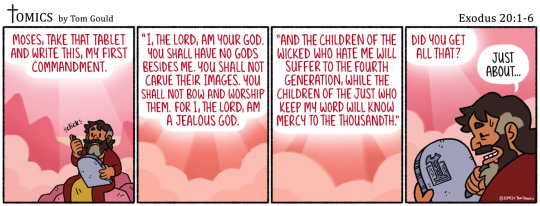
03/01/2024
Fo' chisel.
___
JOKE-OGRAPHY:
1. In this Bible story, God gives Moses the Ten Commandments, which will guide the basic morality of His people. The Commandments aren't clearly numbered in the story, so the Jews, Catholics, and Protestants all split them up differently. Despite the slight differences in numbering, we all use the same verses and end up with the same general rules. In this cartoon, I use the Catholic method of numbering them, so the First Commandment is made up of verses 2-6.
2. In the Bible, the first set of tablets were inscribed by God Himself. In this cartoon, God tries to have Moses write them first, but Moses isn't able to keep up, only finishing the first letter of God's speech by the time He's done.
#catholic#christian#jesus#comic#cartoon#catholic memes#jesus memes#christian memes#tomics#bible#moses#god#ten commandments#clicking a chisel like a pen
246 notes
·
View notes
Text
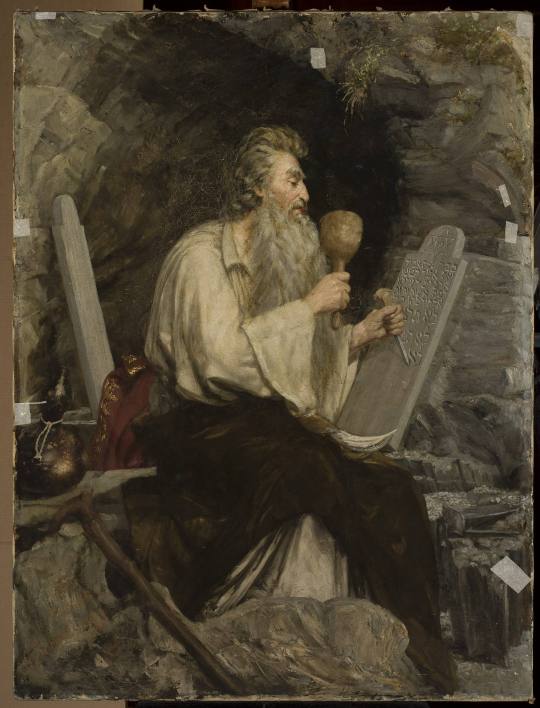
Moses with the Ten Commandments, Aleksander Sochaczewski, 1890
#art#art history#Aleksander Sochaczewski#religious art#Biblical art#Old Testament#Hebrew Bible#Moses#Ten Commandments#Polish art#19th century art#oil on canvas#National Museum in Warsaw
101 notes
·
View notes
Text
Gloxinia quote
"ʏᴏᴜ'ʀᴇ ʙᴜʀᴅᴇɴɪɴɢ ʏᴏᴜʀꜱᴇʟꜰ ꜰᴀʀ ᴛᴏᴏ ᴍᴜᴄʜ ᴡɪᴛʜ ᴇᴠᴇʀʏᴛʜɪɴɢ. ᴇᴠᴇɴ ᴀ ᴋɪɴɢ ᴄᴀɴ ᴀꜱᴋ ᴏᴛʜᴇʀꜱ ꜰᴏʀ ʜᴇʟᴘ ꜰʀᴏᴍ ᴛɪᴍᴇ ᴛᴏ ᴛɪᴍᴇ."

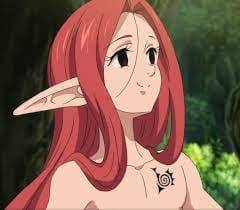

175 notes
·
View notes
Text
Okay ngl I'm losing it a bit over this...


He called her MELA!!
(and I am once again wishing we had gotten to know more about Mel's relationship with the 10C BEFORE the betrayal)
#why didn't i know this until TODAY??#also why was this not a thing in the dub :(#tbh the commandments' relationship with meliodas drives me a little insane every once in a while...#nanatsu no taizai#seven deadly sins#nnt#sds#7ds#meliodas nnt#melascula nnt#ten commandments
158 notes
·
View notes
Text
WHO WANTS A PROFILE PICTURE?
I decided to decorate my keyboard with characters from the Seven Deadly Sins (long story) so I’m going to have a bunch of square images of characters.
No payment no nothing, I’m handling them out for free, but first come first serve applies.
The first batch is the Ten Commandments, if you want one, comment the name of the character you want, and I’ll DM you about it
1) Zeldris (taken)
2) Melascula (taken)
3) Monspeet (taken)
4) Gloxinia (taken)
5) Estarossa (taken)
6) Grayroad
7) Derieri (taken)
8) Drole (taken)
9) Galand (taken)
10) Fraudrin (taken)
The names that are green are available; if they turn red, that means they are taken.
#nnt anime#nnt manga#seven deadly sins#the seven deadly sins#nanatsu no taizai#nnt#sds#ten commandments#demons#zeldris#melascula#monspeet#gloxinia#estarossa#grayroad#derieri#drole#galand#Fraudrin
56 notes
·
View notes
Text
*Originally this commandment was a long list of things not to covet, floating across any number of commandments depending on jurisdiction, so I'm letting it stand at all covetousness for the sake of brevity. Also, sorry if the itemized breakdown above is not according to your original set of commandments, different religions and sects group them differently and I went with the easiest set to vote on.
389 notes
·
View notes
Text

It's the birthday of the First Fairy King !
Will he be able to find some rest today?
35 notes
·
View notes
Text

Christopher Hitchens’ New 10 Commandments
1. Do not condemn people on the basis of their ethnicity or color.
2. Do not even think about using people as private propriety, as owned or as slave.
3. Despise those who use violence (or the threat of it) in a sexual relationship.
4. Hide your face and weep if you dare to harm a child.
5. Do not condemn people for their inborn nature.
6. Be aware that you too are an animal and dependent on the web of nature; think and act accordingly.
7. Do not imagine that you can escape judgment if you rob people with a false prospectus rather than with a knife.
8. Turn off that fucking cellphone. You have no idea how unimportant your call is to us.
9. Denounce all Jihadists and Crusaders for what they are: psychopathic criminals with ugly delusions (and terrible sexual repressions).
10. Be willing to renounce any God or any religion, if any holy commandment should contradict any of the above.
Was that so hard?
94 notes
·
View notes
Text


aséret ha➰dvarím
250 notes
·
View notes
Text
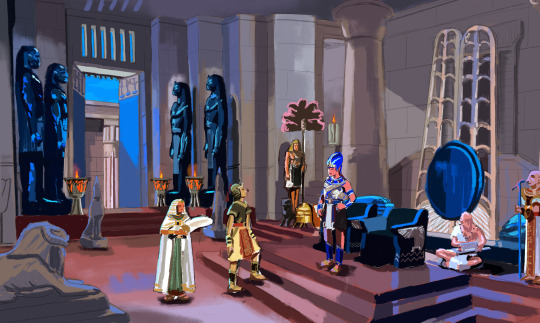

Progress on the commission painting, the sketched colors, and lighting have been added.
#commission#digital art#art#procreate#concept art#fanart#artists on tumblr#ancient egypt#digital paitning#painting#ten command#egypt#nefretiri#ramses#Moses#ten commandments#movie#golden hollywood#classic movie
41 notes
·
View notes
Text
My first contribution to this fandom is this six page essay i wrote on gloxinias morality for ethics class.
More under the cut
Gloxinia of Repose is a character from the Netflix show The Seven Deadly Sins, and ultimately one of the more interesting characters within the show. Gloxinia’s morality is a warped and twisted version of consequentialism. Gloxinia serves as a minor antagonist through the series, though in the end he ends up as something akin to a ‘hero’. However, due to the nicheness of the show itself, some background information is vital to understanding Gloxinia’s complexly twisted morality.
The setting of The Seven Deadly Sins is a vaguely medieval time period, with a fantasy genre. Gloxinia is part of a gang labeled The Ten Commandments whose goal is to take over the land of Britannia. Opposing The Ten Commandments is a group called The Seven Deadly Sins.
It’s a rather simple ‘good versus evil’ fight, with The Ten Commandments generally having some twisted morality and a dislike for most of the other races.
However, Gloxinia was something of an odd character. He was not outright bloodthirsty. He was sadistic and childishly cruel, yes. He seemed to prioritize fun over actually doing his job properly, and was willing to put on a big performance rather than fighting with all his might. Most notably, Gloxinia had a particularly pessimistic view of the world and seemed to have some sort of grudge against humans. He even went so far as to call them a “Vial repugnant race”. To add to this, he also was shown to be rather lazy and self centered. The only person he was actively nice to was his friend Drole. Every other person who allied with the humans, he attempted to kill in the most fun way possible and was shown to get rather annoyed when people strayed from his little ‘game’.
Then, he did a quick switch up. He stopped being awful after he helped to kill his ex friend, Meliodas. All through the fight scene with Meliodas, Gloxinia could be seen actively feeling bad. This scene is extremely important, because it proves that Gloxinia is not sociopathic. He does have some sort of twisted morality behind him.
Then, after that, he switches and decides to help out The Seven Deadly Sins, giving Harlequin and Diane a large portion of his own power to do so. He discovers his dead sister was still alive, and ends up sacrificing himself in order to let The Sins escape from the demon Chandler, and to attempt to make up for all of his wrong doings. He ends up dying rather quickly, but he seems content with his choices, as he did die with a smile on his face.
Through all of this, he also has his friend Drole right by his side. The two even end up dying together. Drole and his sister were his favorite people, and Gloxinia was not ever shy in showing that. He would heal Drole with a very limited healing ability, and the loss of his sister incited a 3,000 year long mental breakdown. This mental breakdown is where his crueler persona developed, and it’s what caused Gloxinia to join The Ten Commandments to begin with.
Yet, despite his clear adoration for his friends, he did not extend the same kindness to Meliodas. He actively helped kill Meliodas, and while Gloxinia clearly felt bad for Meliodas that did not stop his horrible actions. So the question is: Why? Why was Gloxinia willing to pick and choose which of his friends he killed off? Why was he willing to heal Drole, and go on a warpath for his sister Gerheade, yet he could not even find it in himself to spare his other friend? They all seemed just as close from the few interactions we saw. So what on Earth made Gloxinia willing to pick and choose between his friends? Well, the answer is simple. Gloxinia is a consequentialist, and he believed killing Meliodas was for the greater good.
According to Russ Shafer, author of The Fundamentals of Ethics, fifth edition, “If you have a choice between two options and the first is less good than the second, then the first can’t possibly be right.” This is a good way to sum up the entire thought process of consequentialism. The whole moral theory is based upon doing whatever good possible (Shafer-Landau). It is about minimizing damage and picking the best option from the wreckage, even in a bad situation (Shafer-Landau).
However, consequentialism is not without its issues. It is a rather easy morality to sway if you have the wrong ideals. As put by Alvin I. Goldman, author of RELIABILISM, VERITISM, AND EPISTEMIC CONSEQUENTIALISM, “Consider Judith Thomson's (1976) example of a transplant surgeon who encounters a patient during a routine check-up and decides to chop him up, take his organs, and transplant them in five other patients, each in need of one of those organs. From a teleological point of view, this action is good, perhaps even right. Greater overall happiness will be promoted by this action than by simply attending to the original patient and letting those in need of organ transplants die (Goldman).” As Goldman puts it in this quotation, prioritizing the needs of the many is not always necessarily ethical.
Now, this relates to Gloxinia and his moralities quite easily. He felt Meliodas was a threat. Meliodas had been branded a traitor to the demon race and The Ten Commandments were supposed to kill Meliodas and free the rest of the demon race from the seal.
Gloxinia had always been the type to weigh his options carefully. To try and choose the least harmful path, or the path that did the most good, as consequentialists tend to do. It is important to note that after being betrayed by a group of humans, Gloxinia saw humans as evil at this point. This is absolutely integral to his character, and the choices he makes. He chooses to try and kill Meliodas, one of his oldest and only friends, because Meliodas sided with the humans.
To Gloxinia, killing off all of the evil humans who tried to kill his sister was a good thing. Humans were a disgusting race which he despised. It only made sense for him to try for genocide. Meliodas was an obstacle to him at that point, and Gloxinia, in the truest consequentialist fashion, chose to help kill Meliodas. Gloxinia was clearly not happy about it, indicating that this decision was not one chosen lightly. This was something that made him consider his own moralities, and ultimately choose to attempt to do something that felt less wrong to him. Which is where helping Harlequin and Diane came into play.
He ended up helping them figure out how to be more powerful, while also informing them on the events that led the demon race to be sealed to begin with, as well as the events that led him to ultimately become a Commandment.
It would be a crime to speak on all of this, and leave out the most important event of Gloxinia’s life. An event that he based his entire morality off of, and the one that led Gloxinia to being a Commandment. His sister's death.
This whole event happened because he trusted a group of humans. The humans ended up betraying him and cutting off his sister's legs, her eye, and half of her wings. One human defected from the group and tried to save Gerheade, but Gloxinia spotted the human holding what he assumed was her mangled corpse and murdered the human. Then, Gloxinia went on to continue killing humans. As many as he could find. Zeldris found him and offered to let him join The Ten Commandments.
This was the greatest showing of his consequentialist nature showing through. To Gloxinia, killing off humans was for the greater good. The action may not have been fun, but it was something that had to be done. Or the humans may go around doing the same to others. While Gloxinia certainly did have fun with it, he still was doing it willingly.
What Gloxinia experiences when he changes sides and decides to kill humans is actually referred to as moral disengagement. Which, according to Helet Botha, author of Existentialist Perspectives on the Problem and Prevention of Moral Disengagement is “ Moral disengagement was originally conceived of as a psychological process—a set of cognitive mechanisms—whereby an individual becomes capable of dissociating with their internal moral standards and thus behaving unethically without feeling distress (see also Newman et al., 2020) (Botha).” This is how Gloxinia was able to do such a quick switch from liking humans to hating them.
Some people may attempt to argue that his morality could possibly be psychological egoism. A good way to sum it up is by Di Carlo Emiliano, author of Antecedents of Deviant Behavior: Psychological and Non-Psychological Factors and Ethical Justifications, “According to the homo economicus assumption, the human being is a self-serving individual only interested in maximizing its utility function (Jensen & Meckling, 1976) (Carlo Emiliano).” In other words, humans are selfish. They put themselves first, for better or worse. And considering how Gloxinia attempts to commit genocide against humans due to his own trauma, it may certainly see that way.
There’s no denying that everything Gloxinia did was tinged with a bit of selfishness. He killed, he separated families. Broke apart entire generations all because he decided he hated something. His sister turned out to be alive after all, and he apparently just left her there. He certainly thought she was dead, but that does not change the fact that it was selfish. Not only that, but a lot of Gloxinia’s dialogue would lead you to believe that he truely and genuinely believes that all humans are selfish. And he absolutely does. Which is why he goes out and kills the humans he’s killed.
“Is it appropriate to sacrifice one person to save many?” Is the question asked by Yoshiyuki Takimoto, author of Verification of the Japanese Version of Greene’s Moral Dilemma Task’s Validity and Reliability. This question is a great example of consequentialism, and Gloxinia’s overall mortality. He is willing to sacrifice one person to save many. And in the end, he sacrificed himself to try and slow down the demon Chandler. He lost and died. It was his way of bringing good out of all of the bad he had caused. The ultimate sacrifice.
So, with all of this being said, it’s quite clear that Gloxinia of Repose from the Netflix show The Seven Deadly Sins had a consequentialist morality. He constantly weighed the pros and cons of his own actions, was deliberate in the way he approached things, and consistently did his best to try and bring true goodness. Even though it was a very flawed and scary stance to take- genocide just really isn’t the correct answer for most problems. He still took this stance with the idea that what he was doing was absolutely and entirely good. And in the end, in an attempt to make things right, he sacrificed his own life. He died for his morality, his viewpoints, and to protect the very friends he tried to kill.
Bibliography
Shafer-Landau, R. (n.d.). The Fundamentals of Ethics (5th ed.). Oxford University Press.
Goldman, A. I. (2015). RELIABILISM, VERITISM, AND EPISTEMIC CONSEQUENTIALISM. Episteme,
.10th Anniversary of Episteme, 12(2), 131-143.
https://doi.org/10.1017/epi.2015.25
Di, C. E. (2022). Antecedents of Deviant Behavior: Psychological and Non-Psychological Factors and Ethical Justifications. Employee Responsibilities and Rights Journal, 34(2), 169-191. https://doi.org/10.1007/s10672-021-09387-x
Di, C. E. (2022). Antecedents of Deviant Behavior: Psychological and Non-Psychological Factors and Ethical Justifications. Employee Responsibilities and Rights Journal, 34(2), 169-191. https://doi.org/10.1007/s10672-021-09387-x
Takimoto, Y., & Yasumura, A. (2023). Verification of the Japanese Version of Greene’s Moral Dilemma Task’s Validity and Reliability. Psych, 5(1), 224. https://doi.org/10.3390/psych5010017
#this is what mental illness looks like folks#six pages on a fictional character#SIX PAGES#i got a B on the essay btw#the moral of this story is that gloxinia is an asshole#and would tear down the world for his morals#and id tear down the world for him#seven deadly sins#morality#fairy king gloxinia#7ds#anaylsis#headcanon#ten commandments#gloxinia#gloxinia of repose#first fairy king gloxinia#sds#nnt#nanatsu no taizai
22 notes
·
View notes
Text

#george carlin#ten commandments#the bible#lawyers#politics#politicians#judges#work ethic#work environment#athiest#athiesm#hostility#hostile work environment#funny memes
76 notes
·
View notes
Text
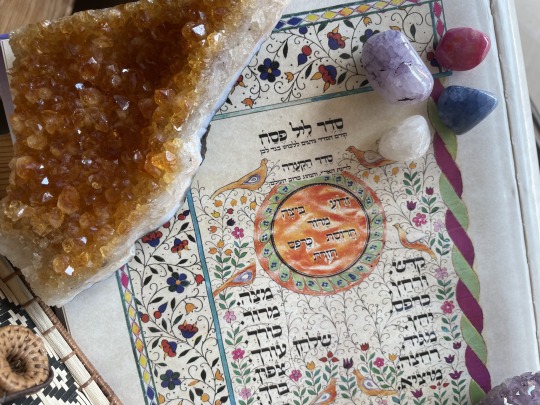
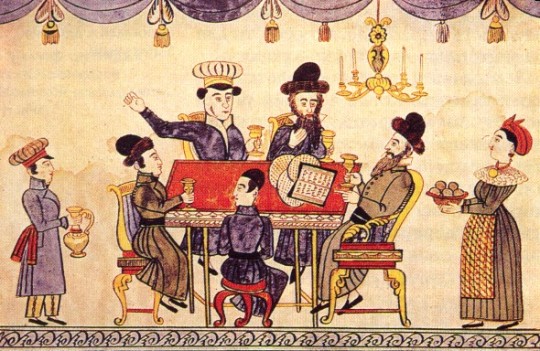
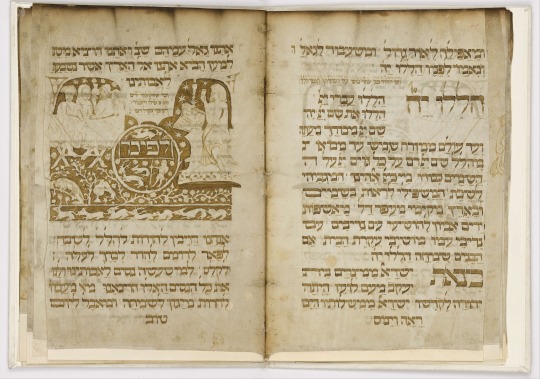





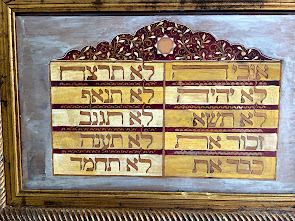




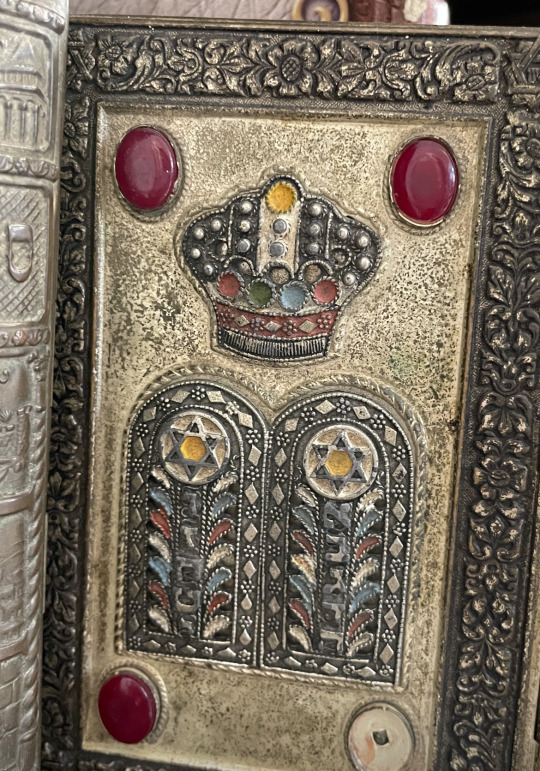
וְהִגַּדְתָּ לְבִנְךָ
(שמות יג, ח)
#faith#holyland#jewish judaism#judaism#holiness#passover#pesach#jewish#holiday#biblical#ten commandments#ethics#matzo#bible scripture#sacred
11 notes
·
View notes
Text
103 notes
·
View notes
Text
Catechism of the Catholic Church
THE TEN COMMANDMENTS
1 I am the Lord your God: you shall not have strange Gods before me.
2 You shall not take the name of the Lord your God in vain.
3 Remember to keep holy the Lord's Day.
4 Honor your father and your mother.
5 You shall not kill.
6 You shall not commit adultery.
7 You shall not steal.
8 You shall not bear false witness against your neighbor.
9 You shall not covet your neighbor's wife.
10 You shall not covet your neighbor's goods.
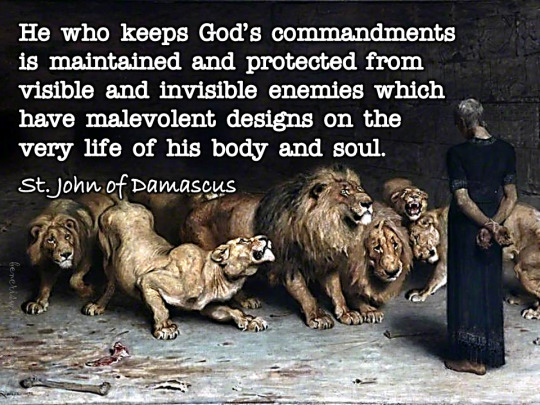
39 notes
·
View notes